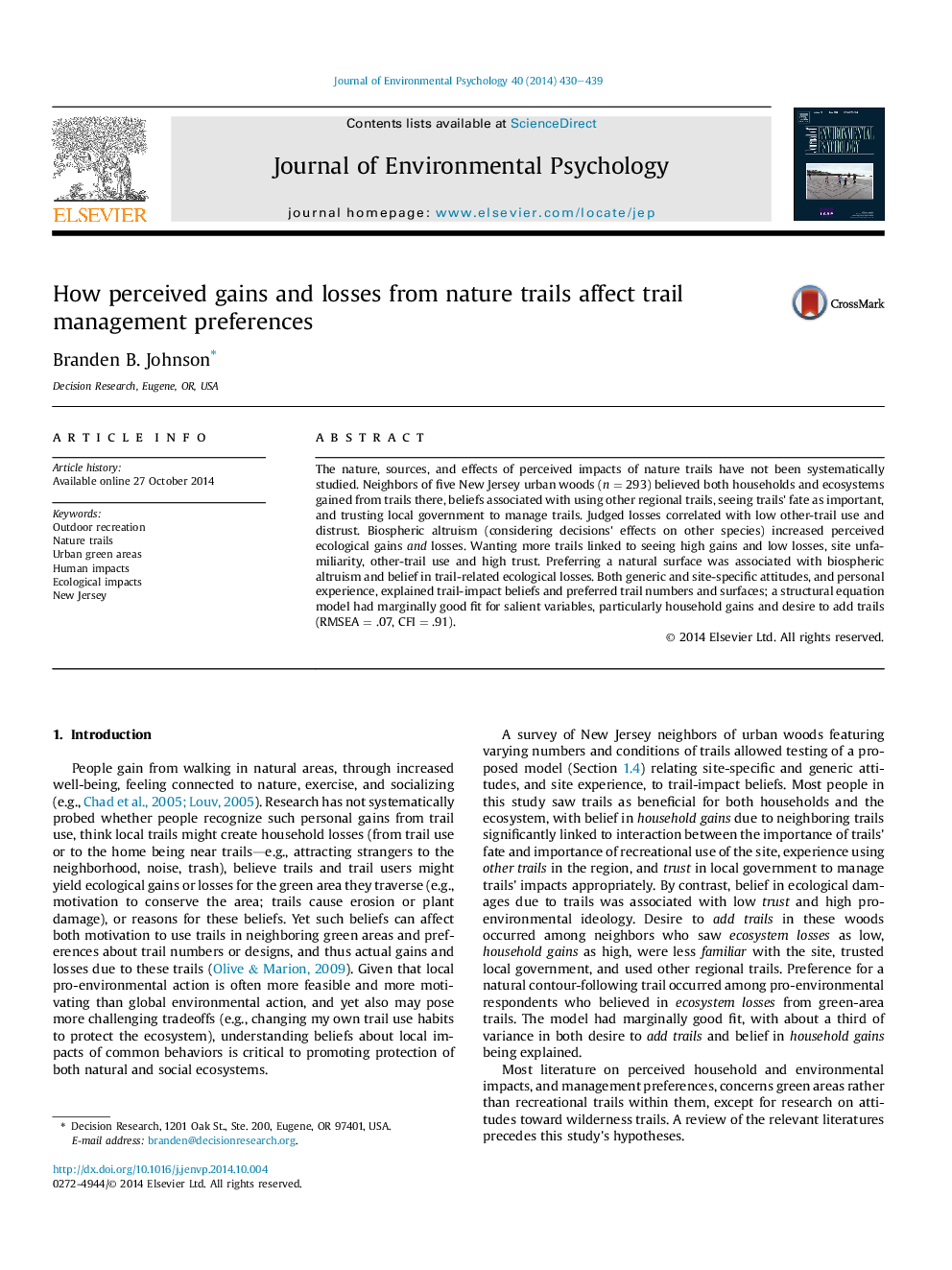| Article ID | Journal | Published Year | Pages | File Type |
|---|---|---|---|---|
| 7246098 | Journal of Environmental Psychology | 2014 | 10 Pages |
Abstract
The nature, sources, and effects of perceived impacts of nature trails have not been systematically studied. Neighbors of five New Jersey urban woods (n = 293) believed both households and ecosystems gained from trails there, beliefs associated with using other regional trails, seeing trails' fate as important, and trusting local government to manage trails. Judged losses correlated with low other-trail use and distrust. Biospheric altruism (considering decisions' effects on other species) increased perceived ecological gains and losses. Wanting more trails linked to seeing high gains and low losses, site unfamiliarity, other-trail use and high trust. Preferring a natural surface was associated with biospheric altruism and belief in trail-related ecological losses. Both generic and site-specific attitudes, and personal experience, explained trail-impact beliefs and preferred trail numbers and surfaces; a structural equation model had marginally good fit for salient variables, particularly household gains and desire to add trails (RMSEA = .07, CFI = .91).
Related Topics
Social Sciences and Humanities
Psychology
Applied Psychology
Authors
Branden B. Johnson,
